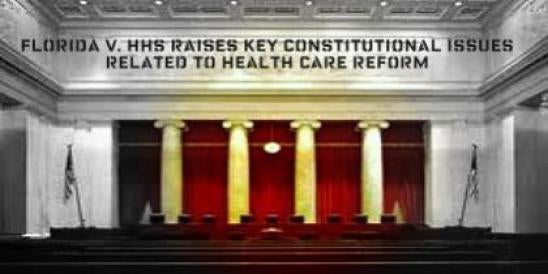In a 9-0 decision, the United States Supreme Court has held that courts may review the sufficiency of the Equal Employment Opportunity Commission’s notice of and opportunity for conciliation afforded an employer under Title VII of the Civil Rights Act, but that the statute gives the EEOC discretion on “how to conduct conciliation efforts and when to end them.” Mach Mining, LLC v. Equal Employment Opportunity Commission, No. 13-1019 (Apr. 29, 2015).
Decisions Below
Title VII requires the EEOC to endeavor to conciliate a dispute with an employer after it finds reasonable cause to believe discrimination occurred and before the Commission files a lawsuit. In the district court, Mach Mining argued that the EEOC had failed to conciliate in good faith prior to the EEOC filing its lawsuit. On interlocutory appeal, the U.S. Court of Appeals for the Seventh Circuit held that Title VII’s directive to conciliate was not subject to judicial review. EEOC v. Mach Mining, LLC, 738 F.3d 171, 177 (7th Cir. 2013).
Judicial Review is Necessary
Writing for the unanimous Supreme Court, Justice Elena Kagan rejected the EEOC’s argument that Title VII provided no standards by which a court might evaluate the sufficiency of the EEOC’s conciliation efforts. She emphasized the importance of conciliation within the scheme of Title VII and wrote that absent judicial review, “[t]he Commission’s compliance with the law would rest in the Commission’s hands alone.”
Courts are Not to Do a Deep Dive
Turning to the issue of what level of review was appropriate, the Court rejected the employer’s proposal that courts evaluate conciliation in the same manner they evaluate good faith bargaining under the National Labor Relations Act. According the Justice Kagan, the NLRA and Title VII are different statutory schemes and courts should not do a “deep dive” into the conciliation process.
Conciliation Obligations
According to the Court, an employer is entitled to information that will allow the employer the opportunity to remedy the allegedly discriminatory practice; this includes information on what the employer had done and the persons harmed.
Instructions to Courts in Reviewing EEOC Conciliation Efforts
A sworn affidavit from the EEOC outlining the performance of its conciliation obligations will typically suffice to show that the EEOC has met its obligations to conciliate, wrote Kagan. But, citing a Supreme Court decision from last term, United States v. Clarke, 134 S. Ct. 2361 (2014) (involving the Internal Revenue Service),Mach Mining contemplates that a court may continue the inquiry beyond an EEOC affidavit. Such fact finding would occur if the employer provides evidence that the EEOC did not provide the employer with adequate information or the EEOC did not attempt to engage in a conciliation discussion, the Court said. If the employer demonstrates insufficient conciliation, the Court explained, “the appropriate remedy is to order the EEOC to undertake the mandated effort to obtain voluntary compliance.” Interestingly, while the Court rejects using an NLRA-type good faith review of EEOC conciliation efforts, the Clarke decision permits court review of agency action based on a showing of bad faith.
Looking Forward
Shortly after the ruling, the EEOC posted a news release praising the Supreme Court’s decision and quoting EEOC Chair Jenny Yang as stating the EEOC remains committed to the conciliation process. To the extent EEOC conciliation efforts are litigated in the future, it is most likely such litigation will occur at the beginning of an EEOC lawsuit, with the employer asserting the EEOC did not properly provide notice of the alleged discriminatory conduct or the persons harmed, and therefore denied it an opportunity to conciliate.




 i
i

